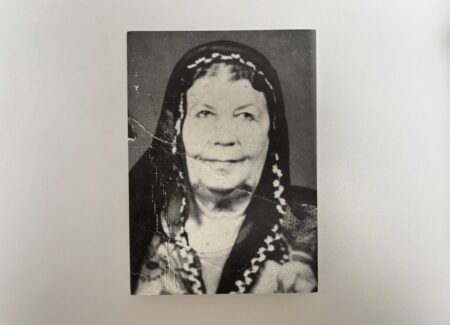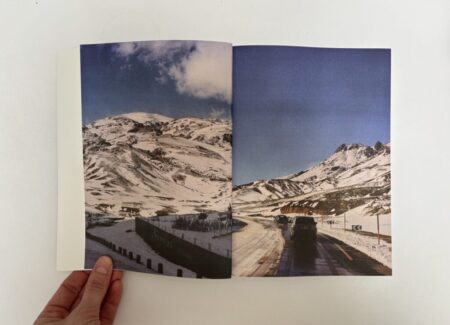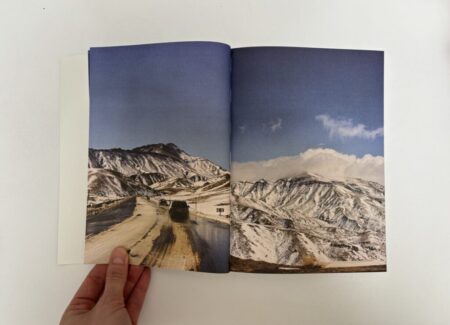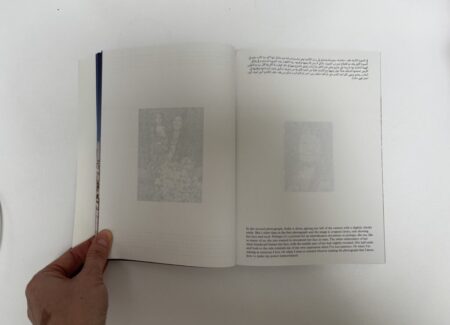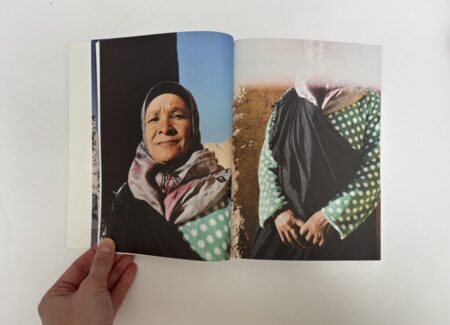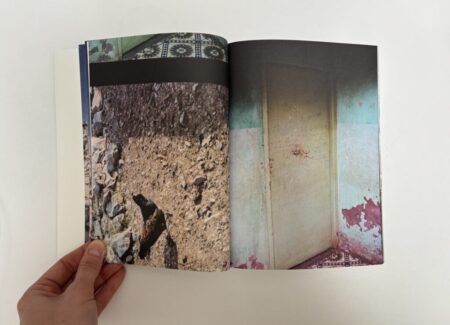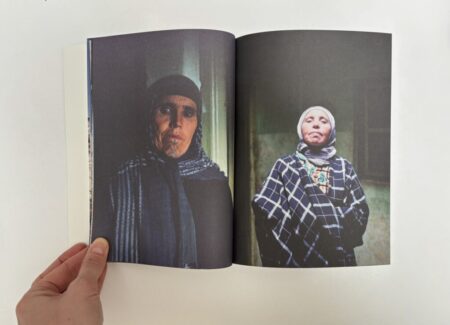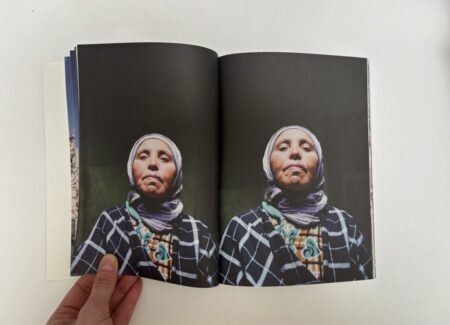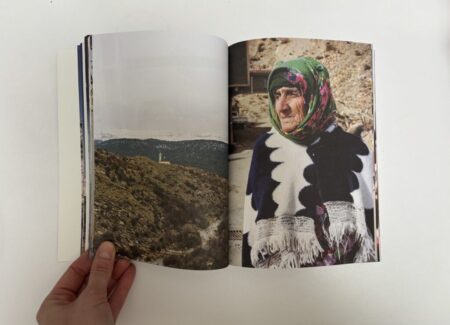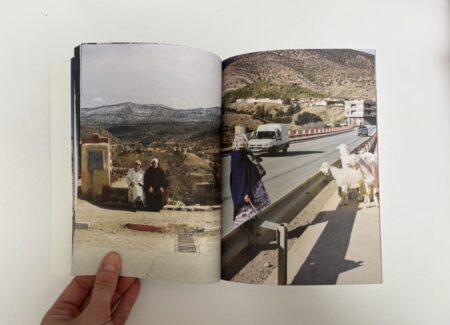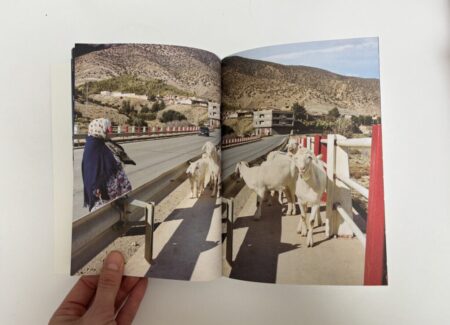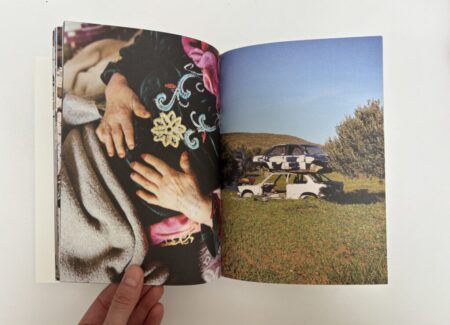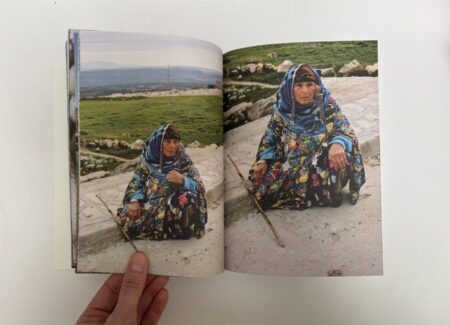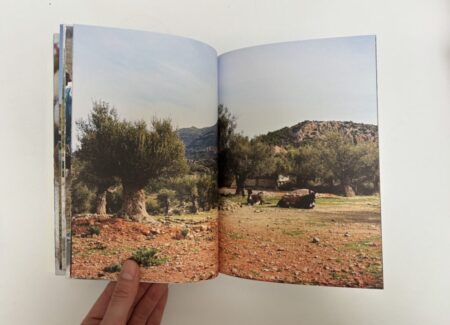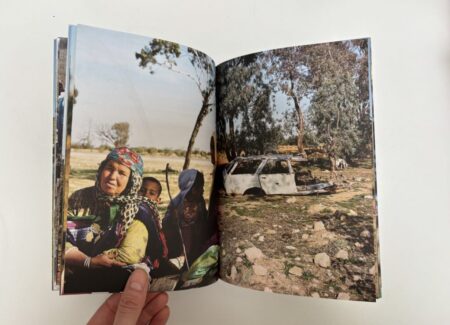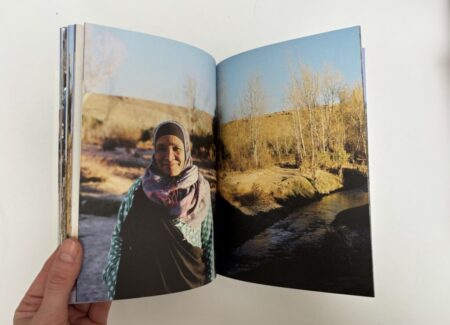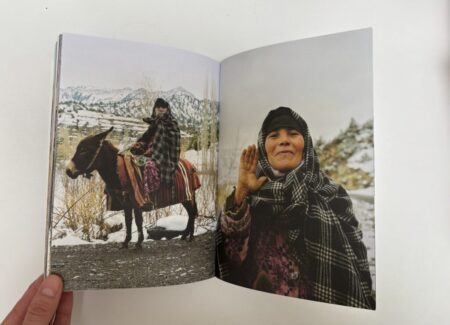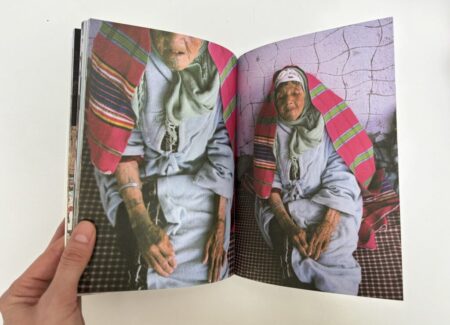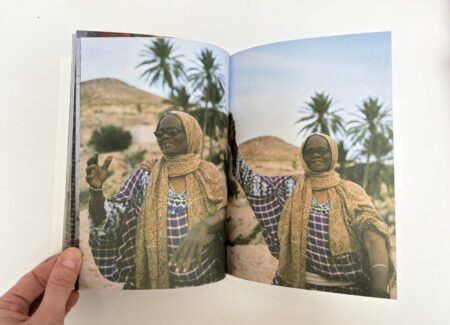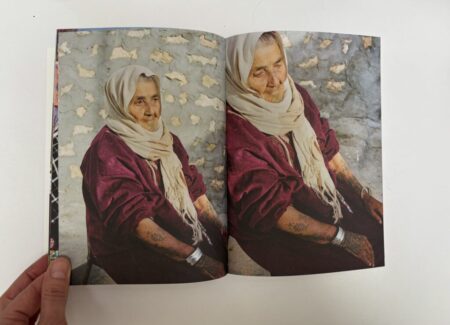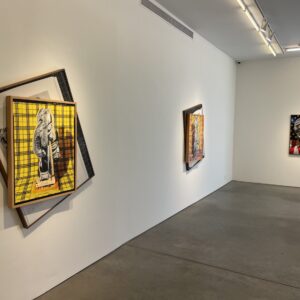JTF (just the facts): Published in 2024 by Edition Patrick Frey (here). Softcover (23.2 × 16.5 cm), 392 pages, with 320 color photographs. Includes texts by the artist (in Arabic and English). Design by Naima Schalcher. (Cover and spread shots below.)
Comments/Context: Aisha is the first photobook by Yumna Al-Arashi, a Yemeni-Egyptian American artist. Al-Arashi was born and raised in Washington, D.C. (and is currently based in Zurich), but her work is largely influenced by her ancestral roots and culture. This photobook is an homage to her great-grandmother, Aisha, and the lineage of women she descends from.
Al-Arashi was particularly curious about the tattoos on her grandmother’s face, as the delicate markings under her bottom lip were a symbol of matriarchal power. At the beginning of the project, Al-Arashi spent time in London pouring through colonial archives, looking at existing imagery from the region, and found most of the pictures inadequate if not insulting. She was particularly surprised not to see any representation or investigation of the tattoos her grandmother had, given how important the practice was and still is in the region. “I found them violent histories orientalizing the women in my bloodline, rendering them lost and replaced by a colonial fantasy.” She realized then that it was essential that she travel to the region to learn about the tattoo practice from its source.
Due to the ongoing war in Yemen, Al-Arashi was unable to travel to the country her grandparents were from, and instead decided to make a journey through north Africa, visiting Morocco, Algeria, and Tunisia. There she met a diverse community of women who belong to more or less the same generation as her grandmother. While working on this photobook, Al-Arashi made a conscious decision to publish every single photograph from her journey, “refusing the violence of selection and definition surrounding women’s practices” found in traditional image making of indigenous people. This approach is at the center of her strategy to resist and reconsider the traditional Western archive. And while many of the photographs in the book don’t particularly stand out on their own, the visual narrative relies on the aggregation of the images as a whole, which becomes key to the visual experience.
Aisha is a soft cover book of almost four hundred pages. An old, slightly dented black-and-white photo of the artist’s grandmother takes up the entire cover, immediately putting her right in the center of the narrative. The title, both in English and Arabic, along with the artist’s name, appears on the book spine. Inside all the photographs are printed full bleed creating a cinematic flow, occasionally paused by thin delicate pages with writings by the artist. There are no page numbers or captions.
Aisha opens with a sequence of photographs depicting mountains slightly covered with snow and a road cutting through them. It is followed by the note from the artist, placed at the very bottom of the page: “There exist three photographs of my great-grandmother, Aisha, that I am aware of. The images were made in Yemen sometime between 1950 and 1970, and subsequently sent to me via WhatsApp in 2015”. These photographs serve as the primary inspiration for this project.
Aisha brings together intimate and delicate portraits of mostly older women, many of them in their 70s, 80s, and 90s, with their faces, and in some cases bodies, tattooed. Their tattoos are often placed on their cheeks, chin, or forehead, and some women have tattoos marking the relationship they have with land. The women see these tattoos as “symbols to protect their families and homes from negative energies and evil spirits”, documenting important moments in life (such as first menstruations, marriage, and children), or describing their tattoos as devotions to the cosmos. Some women Al-Arashi talked to simply thought the tattoos were beautiful.
As we move through the book, there are many portraits of women, often looking straight into the camera; they generally stand outside, marking a strong connection to the land. Usually, each woman is seen in a couple of portraits, allowing us to get closer to her, observe her, and note various details about her life. The bright colors and patterns of their clothes make the visual flow particularly dynamic and joyful.
In one spread, we see a woman on a donkey, and behind her are mountains with a thin layer of snow; on the right, we move in closer, where she slightly raises her right hand, smiling. The sequence that follows shows other outtakes from that same shoot, followed by pages of Al-Arashi’s poems, part of which reads: “I am not in any of these photographs // But I am here in these words”, and continues a couple of verses later, “This story is an earnest attempt // To recover / To heal / To honor // This story was mine // Is now yours”.
Elements of Al-Arashi’s photobook bring to mind recent books that have probed incomplete family histories, like Tarrah Krajnak’s book El Jardín de Senderos Que Se Bifurcan (reviewed here), which imaginatively re-examines the circumstances of the artist’s own birth and adoption, or Mariela Sancari’s emotional book Moisés, where she searched for her deceased father in men the age her father would be if he was still alive.
As a photobook, Aisha is well conceived and thoughtfully designed. Al-Arashi’s work lies in the intersection between investigating her own personal story and documenting the stories of others. Rooted in spiritualism, the custom of face tattoos is part of a long tradition equated with the beauty and empowerment of women, providng a strong anchor point for the project. In this way, Aisha is a joyful celebration of Southwest Asian and North African women, and a thoughtful tribute to the artist’s great-grandmother.
Collector’s POV: Yumna Al-Arashi does not appear to have consistent gallery representation at this time. Collectors interested in following up should likely connect directly with the artist via her website (linked in the sidebar).
